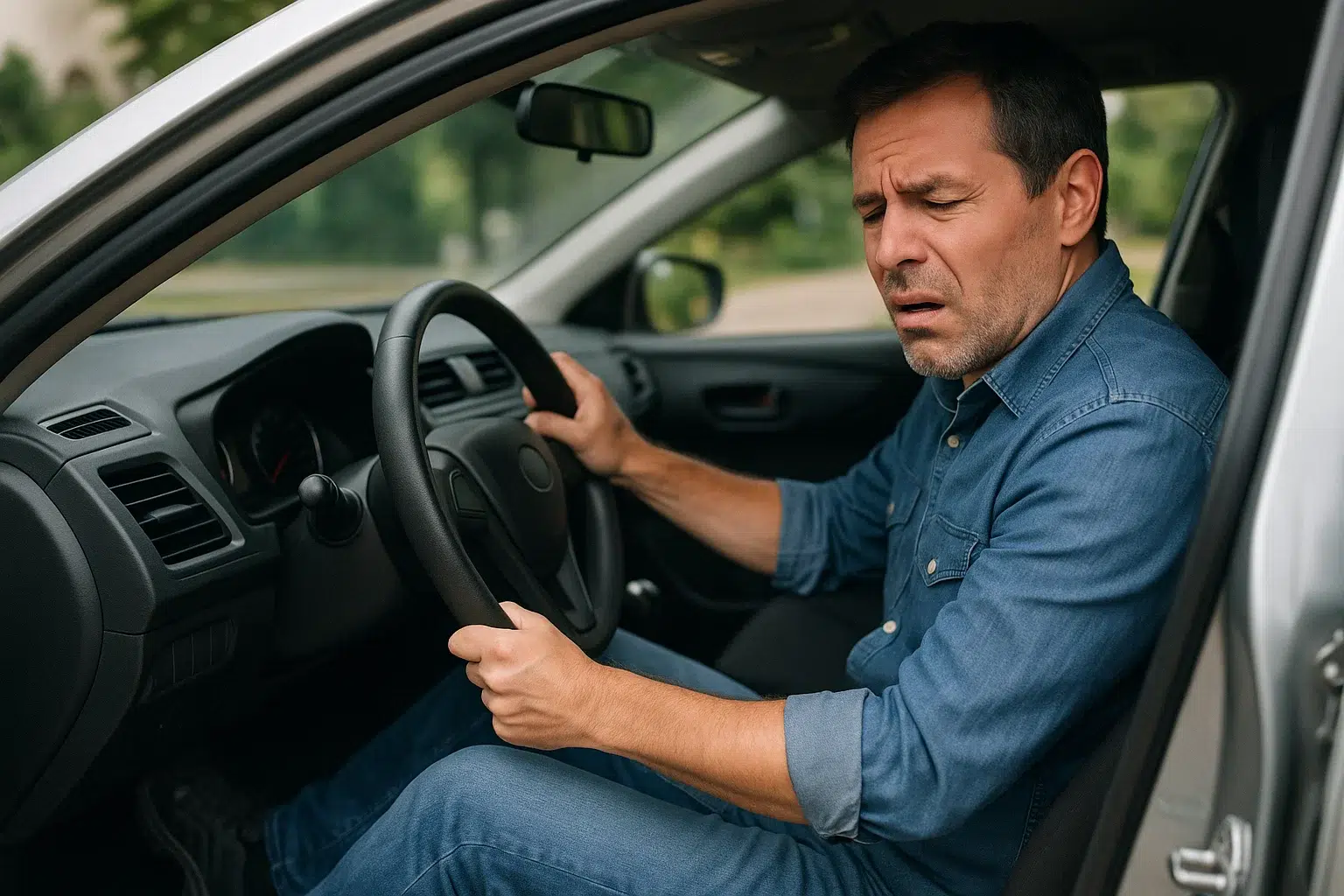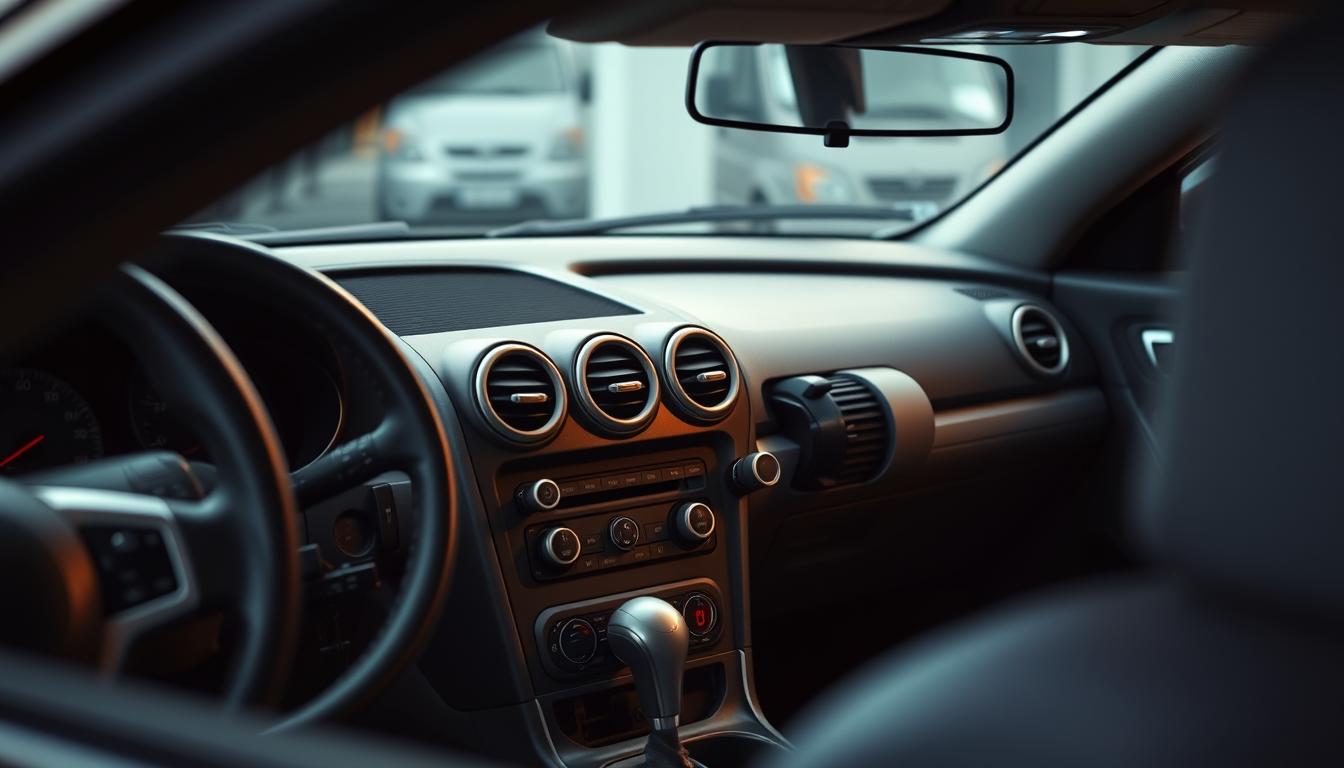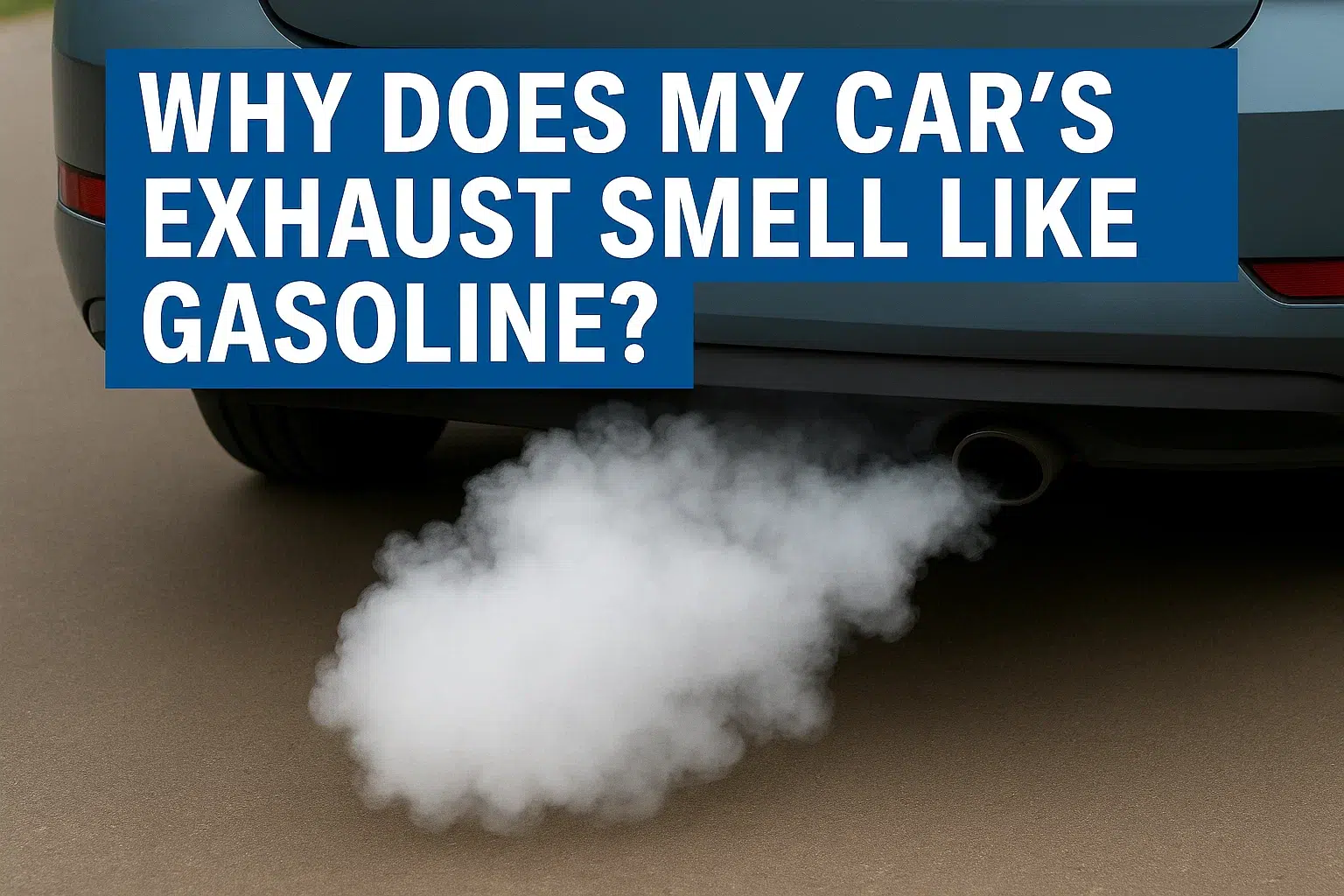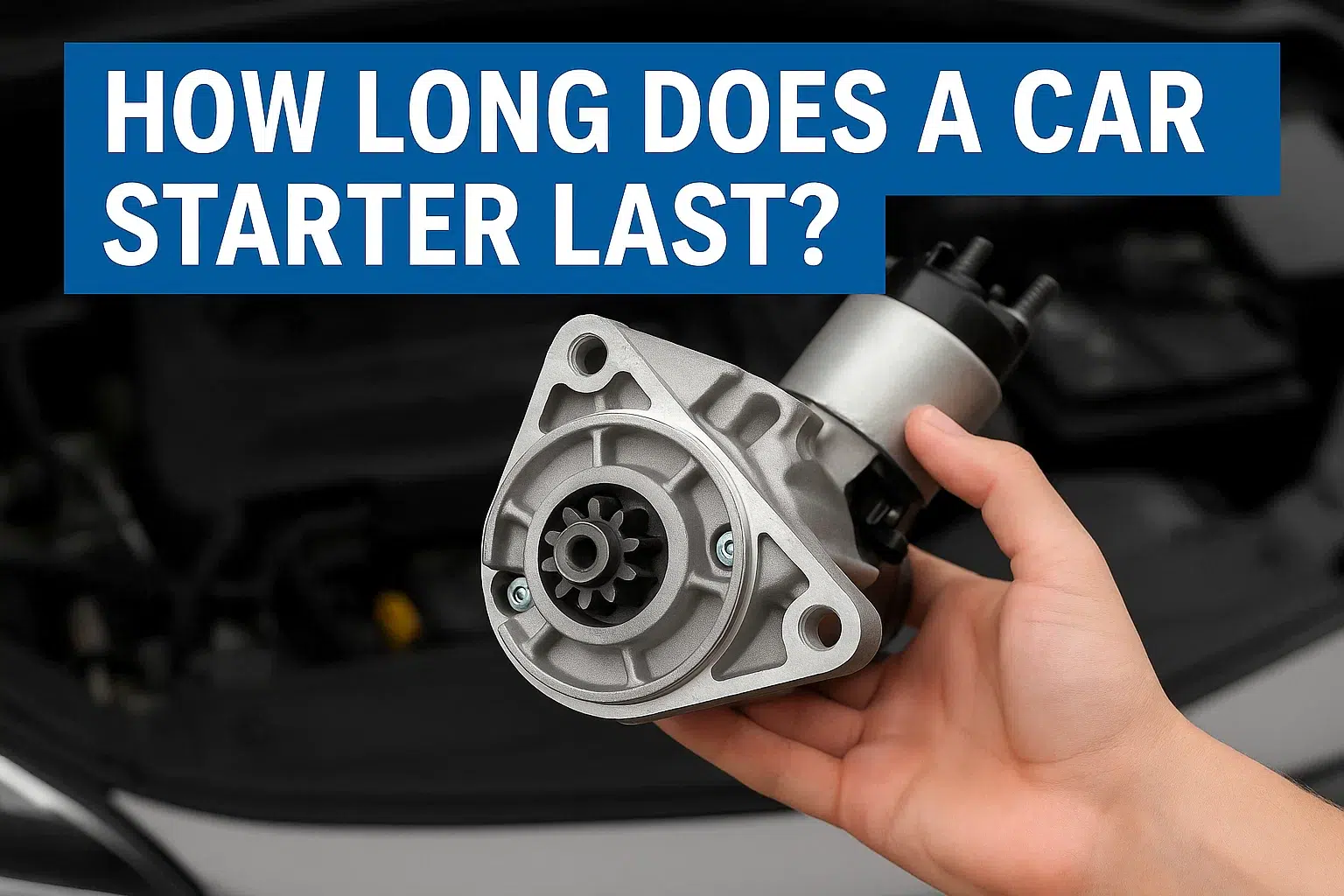If your car doesn’t accelerate when you press the gas, the most common causes are fuel system problems, air intake restrictions, transmission issues, or engine faults. A clogged fuel filter, weak fuel pump, faulty throttle body, or transmission failure can all prevent your car from accelerating properly. In some cases, the car accelerates slowly, jerks forward, or even stops accelerating completely.
Learning what causes a car not to accelerate is important, since it concerns your safety directly. Down below, we will discuss why your car won’t accelerate when you press the gas, what you need to look for, and the best ways to correct the issue.
Fuel Delivery Problems
Your engine requires constant delivery of fuel to do its work. Here’s what you should do When there is no acceleration when pressing gas, it’s most likely that the fuel system is having trouble.
- Fuel filter clog: It prevents fuel from passing through and makes your car struggle to accelerate.
- Weak fuel pump: Leads to jerking or car not accelerating when pressing gas.
- Dirty injectors: Spray irregularly, and this can cause a hesitation when you get on the pedal.
If you feel like the car doesn’t want to accelerate uphill, the fuel pressure might drop under load.
Air Intake Restrictions
Engines rely on oxygen to mix with fuel. Without enough air, you’ll face delayed or no acceleration.
- Dirty air filter limits airflow.
- Failing mass airflow sensor (MAF) provides incorrect readings, leaving the car not accelerating and jerking.
- Vacuum leaks cause uneven air/fuel ratio, leading to weak throttle response.
When the car accelerate feels sluggish, start by checking the air filter. It’s one of the cheapest fixes.
Another culprit could be the transmission. If your car won’t accelerate at all but the engine revs, low fluid levels may be to blame.
Transmission-Related Issues
A healthy transmission transfers power smoothly from the engine to the wheels. When things go wrong, the car doesn’t accelerate even if the engine runs fine.
- Manual cars: A slipping clutch prevents acceleration.
- Automatic cars: Worn gears or low fluid can result in pressing gas pedal and car not accelerating.
- Continuously variable transmission (CVT) cars often feel like car accelerating slowly when the belt wears out.
Some modern automatic cars have clutches built into dual-clutch systems. If those clutches fail, your car won’t accelerate at all or may jerk when shifting gears.
Throttle Body and Pedal Problems
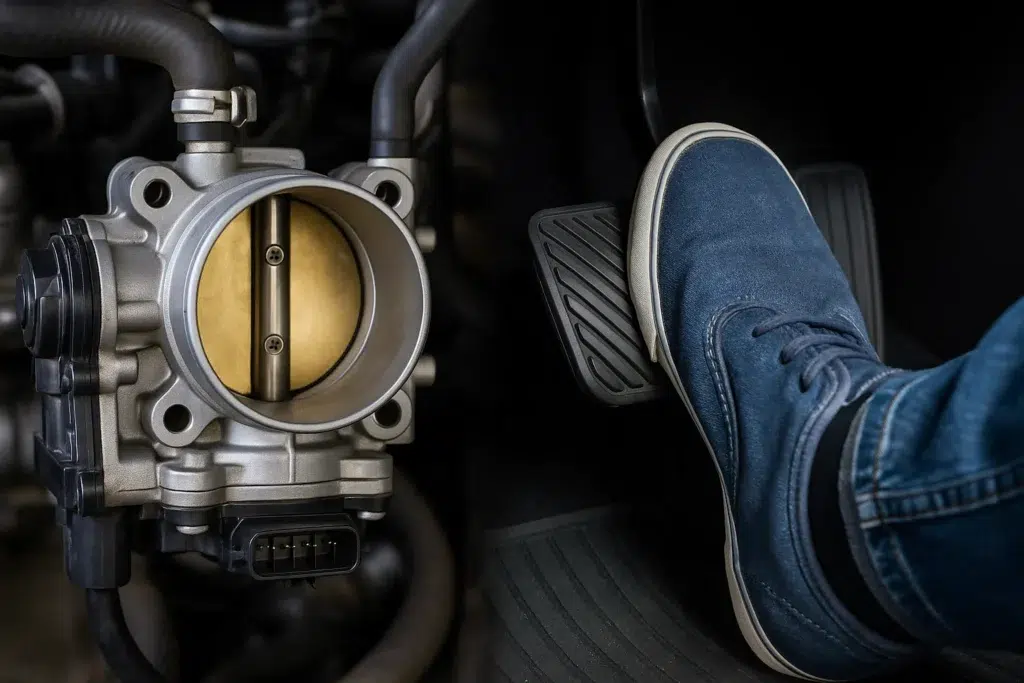
The throttle body controls airflow when you press the gas. A dirty throttle or faulty pedal sensor can cause my car won’t accelerate when I push the gas.
- Dirty throttle body → hesitation and delayed response.
- Faulty accelerator pedal sensor → causes “gas pedal to the floor no acceleration” scenarios.
Sometimes, a dual clutch transmission may also cause inconsistent acceleration if it’s slipping or overheating.
Exhaust Blockages
The exhaust system clears gases out of the engine. If blocked, your car doesn’t accelerate because backpressure prevents power output.
- Clogged catalytic converter → car slows down dramatically.
- Muffler blockage → creates excessive backpressure, leading to car accelerating slowly.
Drivers often ask, “why did my car stop accelerating while driving?” One reason is a failed catalytic converter that overheated and restricted flow.
If you’ve ignored unusual smells or rattling noises, it may be time to consider whether you’ll need a full replacement or just partial repairs. Exhaust problems combined with drivetrain stress can even raise the car axle repair cost.
Ignition and Engine Misfires
When the ignition system fails, you’ll often notice car not accelerating and jerking.
- Bad spark plugs cause misfires, leading to hesitation.
- Worn ignition coils weaken the spark, causing no acceleration when pressing gas.
- Timing issues make your engine lose power completely.
Engine misfires don’t just make your car accelerate slowly—they also damage the catalytic converter long-term.
In some cases, a sudden breakdown may require checking how many axles are on a car, especially if drivetrain issues accompany the acceleration problem.
Electronics and ECU Problems
Modern cars now use computers to control both throttle and transmission. When sensors go out, the car won’t accelerate the way it should.
- The ECU messed up, screwing up the fuel/air ratio.
- A bad throttle position sensor gives simulation signals.
- A few safety functions, including adaptive cruise control, can influence throttle response in the event of a malfunction.
These issues often trigger warning lights but sometimes only show up as delayed acceleration when pressing the gas pedal.
Steering and Driving Controls
In some modern vehicles, acceleration is linked to integrated systems. For instance, a faulty steering wheel control module can disrupt signals that go through the ECU, impacting responsiveness.
Not quite as previously mentioned, but it is something to consider if you are experiencing electrical problems as well, in addition to your acceleration problems.
Preventing Acceleration Problems
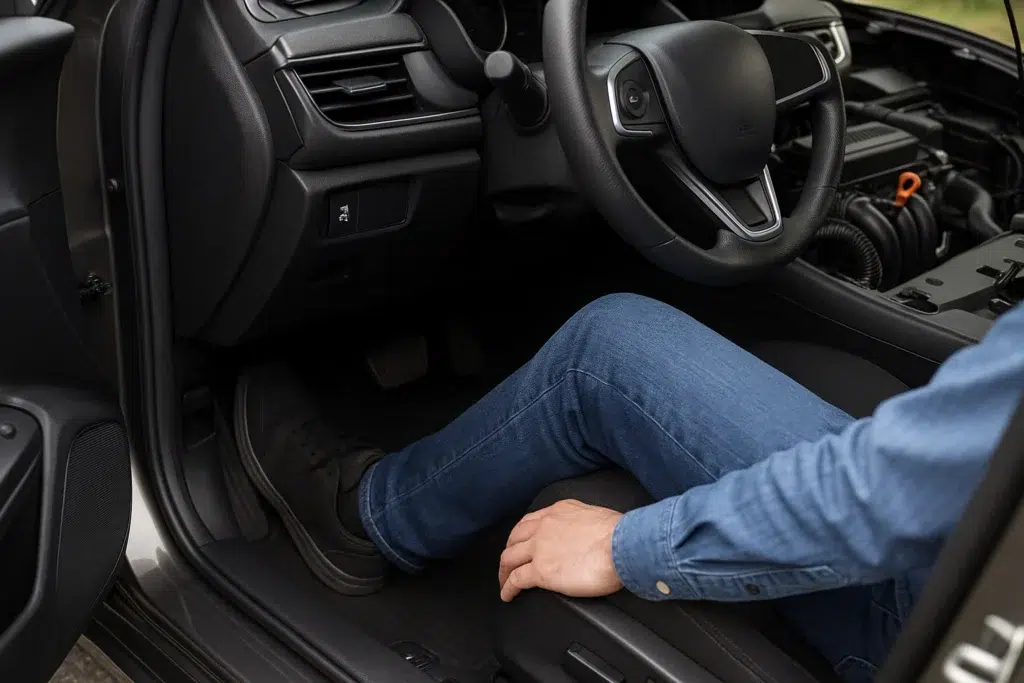
The best way to avoid car doesn’t want to accelerate issues is preventive maintenance:
- Change your filters (fuel, air and cabin).
- Keep spark plugs and ignition components in good shape.
- Change automatic transmission fluid as recommended.
- Use high-quality fuel to prevent injector clogs.
When buying secondhand vehicles, always review history and repair records. A model with good mileage for used car is less likely to suffer from chronic acceleration issues.
When to See a Mechanic Immediately
- If your car won’t accelerate at all despite pressing the gas.
- If the car struggles to accelerate while merging or overtaking.
- If there’s a strong burning odor or gas smell from exhaust.
- If you notice car not accelerating and jerking at highway speeds.
Situations like these can become dangerous very fast, which is why you should have a professional check it out.
FAQs
When I press on my gas, I get delayed acceleration?
Usually caused by a weak fuel pump or dirty throttle body.
When I hit the gas, it won’t accelerate?
Could be a slipping transmission or clogged catalytic converter.
Why does my car not want to go when I hit the gas?
Often due to fuel delivery or air intake issues.
How do I fix my car from struggling to accelerate?
Check filters, spark plugs, and transmission fluid before considering bigger repairs.
Final Thoughts
If you’ve been wondering, “Why won’t my car accelerate when I press the gas?” the causes usually come down to fuel system blockages, air intake restrictions, transmission issues, or ignition failures. Some fixes—like replacing a dirty air filter—are simple, while others—like repairing a CVT or replacing a catalytic converter—require a professional.
Don’t ignore the signs. Anyone who has experienced a car accelerating slowly or not accepting the gas pedal input knows how dangerous it is. Keeping your car in peak running condition pays off in the long run: it extends the life of your ride and maximizes your investment.

I am Tushar Balchandani, founder of Car Info Expert and someone who has been working extensively in the car industry as a car expert for 15 years. My aim is to provide useful truthful and reliable information to the readers based on my real experiences and hands-on experience. From buying tips to maintenance guides, I help readers make confident car-related decisions.

